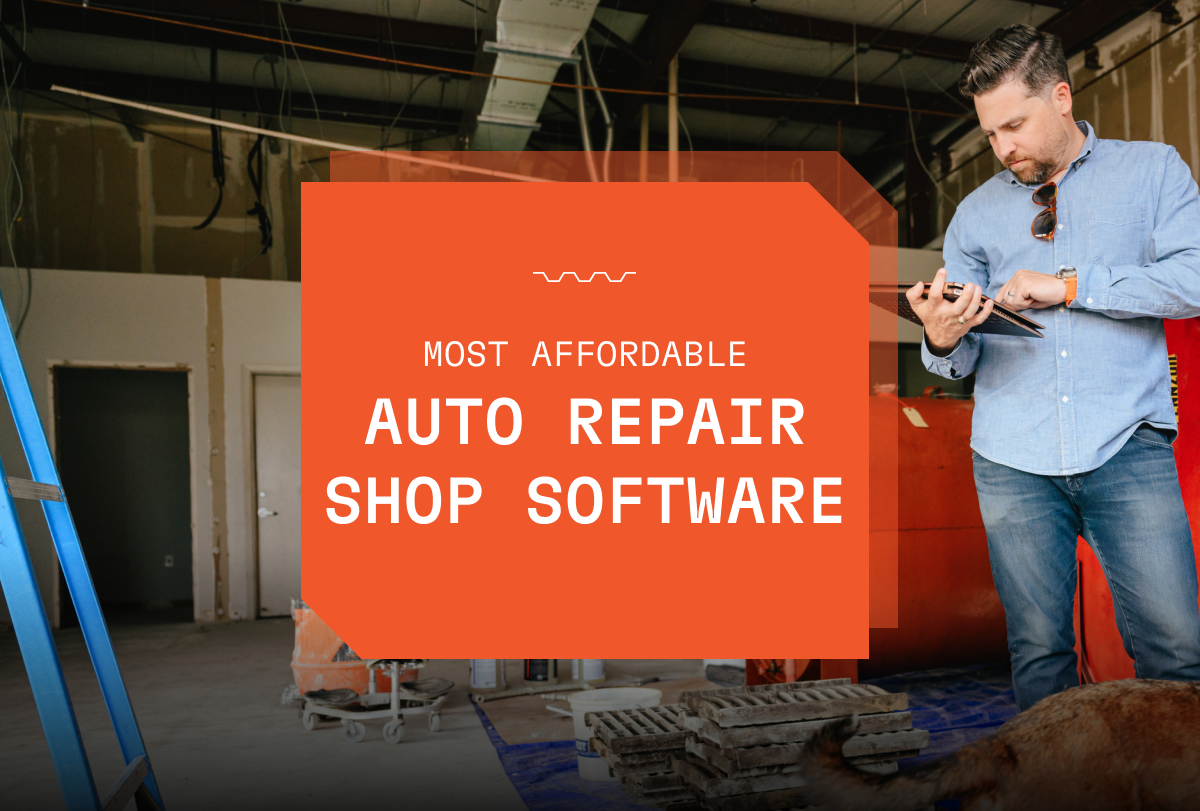The Auto Repair Industry is experiencing a number of changes. From larger economic shifts to a growing technician shortage, its now more crucial than ever to set your shop up for growth.
Often in moments of chaos there are windows of opportunity.
After every economic decline, no matter how steep—the housing crisis, the dot-com bust, even the Great Depression—the world has managed to come back.
Times of economic downturn are difficult, but there is light at the end of the tunnel. As far as the virus is concerned, economists are even speaking of a “V” curve. Meaning just as fast as our economy slowed down, it may pick up that quickly too.
In other words, have hope. There are opportunities during slow periods to adjust how you operate and how you service your guests.
These opportunities can help you navigate a tricky economy and prepare your shop for when business picks up again. This may be an unprecedented time in human history, but it’s also an open window for innovation.
What you do now will have a big impact on the future of your business.
If less cars than usual are rolling into your shop for repairs, you now have some time to work on streamlining your process, being more efficient, eliminating waste (of both time and materials), and improving your marketing and guest experience.
How should shop owners approach this situation? In a way, the same way you might approach business at any other time: finding ways to innovate and improve.
The balance between caution and innovation
If you’re curious to learn how some businesses have been able to adapt and come out of economic downturns stronger than they were before, the article Roaring out of Recession by the Harvard Business Review is worth a look.
The authors, including the dean at the Harvard Business School, studied 4,700 public companies, breaking down the data into three periods: the three years before a recession, the three years after, and the recession years themselves.
They discovered what you might expect: maintaining growth is difficult during a recession, but it’s not impossible. And they were able to observe patterns that companies leveraged to improve their odds of performing better during a downturn.
For some shop owners, a gut reaction to a slowdown might be to cut hours, workers, or even entire programs such as marketing. However, what the research shows is that this actually makes it more difficult to hit the ground running when the economy does bounce back:
Most enterprises implement aggressive cost-reduction plans to survive a recession. But companies that attend to improving operational efficiency fare better than those that focus on reducing the number of employees. - From Roaring out of Recession, Harvard Business Review
On the other side, shops that are too aggressive when it comes to investing in new strategies may have a difficult time recouping costs in the short-term.
For instance, if you’re opening new shops, and rolling out extraordinarily expensive marketing campaigns, the return might not come fast enough to justify the enormous costs you're putting on the line.
But there is a balance you can strike where you’re saving costs while investing in operational efficiencies.
Balance Investments in Operational Efficiencies While Reducing Expenses
Before making any decisions regarding cuts or new investments, it’s crucial to review your balance sheet and monthly budget. Examine your profit and loss statement for opportunities to either cut costs or become more efficient.
Sometimes business owners pay recurring monthly charges for services that they have never cancelled but are no longer necessary.
If you’re paying for something like a digital fax service or a social media scheduling tool that you never use, that’s a few dollars a month you may be able to free up. You may also see that certain forms of advertising are working better than others.
For a lot of shops, now is a good time to move money from mailers and print ads into digital pay-per-click campaigns on search engines and social media, which may not only be cheaper altogether but also cost less per lead and be a more effective way of bringing in customers.
The CEOs of pragmatic companies recognize that cost cutting is necessary to survive a recession, that investment is equally essential to spur growth, and that they must manage both at the same time if their companies are to emerge as postrecession leaders. - From Roaring out of Recession, Harvard Business Review
Consolidate Services
Consolidating the services you pay for as much as possible is another way to save money. A lot of times shop owners will realize that they’re overpaying for multiple systems that make managing their shop a hassle and prevents them from being as efficient as they could be.
Shops with a legacy management system, for example, require shop owners to make the trek to the physical shop location rather than managing remotely, which is a pain during normal business times and might not even be possible during social distancing.
Before the recent economical shift, one shop owner cut costs and optimized by switching to Tekmetric:
We were originally running our shop with two systems; one was for digital inspection and the other was our shop management system. They were both reliant on a server, so I also had an IT team as well. When I added it all up, I was spending $1,000 a month between the software companies and the IT support. And if the internet connection blipped for a split second, my digital inspection went down for about an hour.
Now I’m paying a fraction of what I was before switching to Tekmetric, and I don’t have to worry about downtime or maintenance. We saved a bunch of money, and the estimate writing process is much faster because the labor guide is built into the system. - Excluservice Shop Owner Stephane Grabina
Making the switch not only prepared Excluservice for the downturn by freeing up much needed cash resources and giving them a faster, more reliable system, but also gave them touchless tools that they could leverage to keep providing safe, quality service during social distancing.
Now is Better Than Ever to Boost Your Shop’s Efficiency
Tekmetric was originally built and has been continually been updated with efficiency in mind; it’s part of our design philosophy to make life as easy as possible for shop owners, their team, and their guests.
We always consider the feedback of shop owners and have continued to add features that help shops adapt and even grow during times like these.
Check out some features a proper shop management software should have and the benefits it will present your repair shop.
Cloud-based
- Access anytime, anywhere
- 99.99% uptime
- Easy switch. Fast transition
- Takes up no physical space
- More secure than an on-premise system
- Use on any device with a Google Chrome browser: tablets, smartphones, laptops, and desktops
Customer Profiles
- Provide a better-than-the-dealership experience to guests
- Faster service because you can now pull up guest information, including preferences, in seconds
Built in DVI
- You don’t have to pay for a seperate DVI
- You can use the DVI to gain trust with your clients before taking them through the estimate
- Build larger ROs by finding out everything that can be repaired with a vehicle
Schedule Customer Appointments
- Quickly and efficiently keep track of every job
- Eliminate accidental double-booking
- Makes it easy to keep guests in the loop
Upload Photos
- Gain the trust of your clients
- Keep a record of all repair work
- Send photos to guests so they don’t have to come into the shop
Build Repair Orders with Built-In Labor Guides
- Build ROs in a few minutes or less
- Cut costs by not having to pay for a separate labor guide
Manage Inventory
- Know what’s in stock so that you don’t accidentally order parts that you already have
- Quickly manage and retrieve parts from other shops (if you’re an MSO)
Track Parts
- Set better expectations by knowing when parts will arrive
Monitor Job Workflows
- Quickly identify ways to help your staff work more efficiently
Set Custom Labor Rates, Shop Fees, and Taxes
- Ensure measurability and clarity in your bottom line
- Set a minimum gross profit dollars so that your service writers can close more deals without consulting you or going below your profit line
Send Texts and Emails to Customers
- More flexibility for guests
- Improves shop-to-guest communication
- Builds trust
- Protects guest health and safety
Measure Job Profitability, Gross Sales, Technician Hours Spent, and more
- Enhances visibility into shop performance
- Reveals shop insights related to operational efficiency
- Demonstrates opportunities to improve
In addition to the features and benefits above, Tekmetric also integrates cleanly with many tools that shop owners already know, love, and use. We designed our integrations so that you can access them without navigating out of Tekmetric, helping your team save even more time while using our system.
Learn more about our features
Check out some of our integrations
Switch Now With Lower Risk
One benefit of slower business is that it presents opportunities to research new strategies. If you’ve looked at your balance sheet and realized that you can cut costs with a more efficient, consolidated system, then switching to a cloud-based shop management system like Tekmetric is a good solution for you.
If you’re wondering if the switch will temporarily keep you from normal operations, have no fear. We prepared for that, too.
Tekmetric makes it as easy as possible to switch with remote migration and a roll-out plan that ensures little-to-no downtime. We’ve successfully completed smooth transitions for single shops as well as franchise level companies.
Tekmetric was even able to work with the team at Christian Brothers Automotive to switch over more than 200 shops to Tekmetric without them missing a beat.
As one experienced third-party technology vendor put it:
I’ve never seen anything this quick and this smooth. I don’t know what you (Christian Brothers) and the guys at Tekmetric did, but it went super well—way better than we expected or anticipated from our end as a vendor.
Work Together, Not Alone
The best way to make it through tough times is by working together. We have always seen ourselves as more than just a vendor, but as a partner to the shop owners we work with.
Through our user group and direct communication with shop owners, we always keep in close communication with the shops that rely on Tekmetric.
Just as you strive to provide the highest level of customer experience to your guests, we will strive to do the same for you.

.webp)
%20(1).png)
-%20article%20img.png)

.png)

.svg)



.svg)